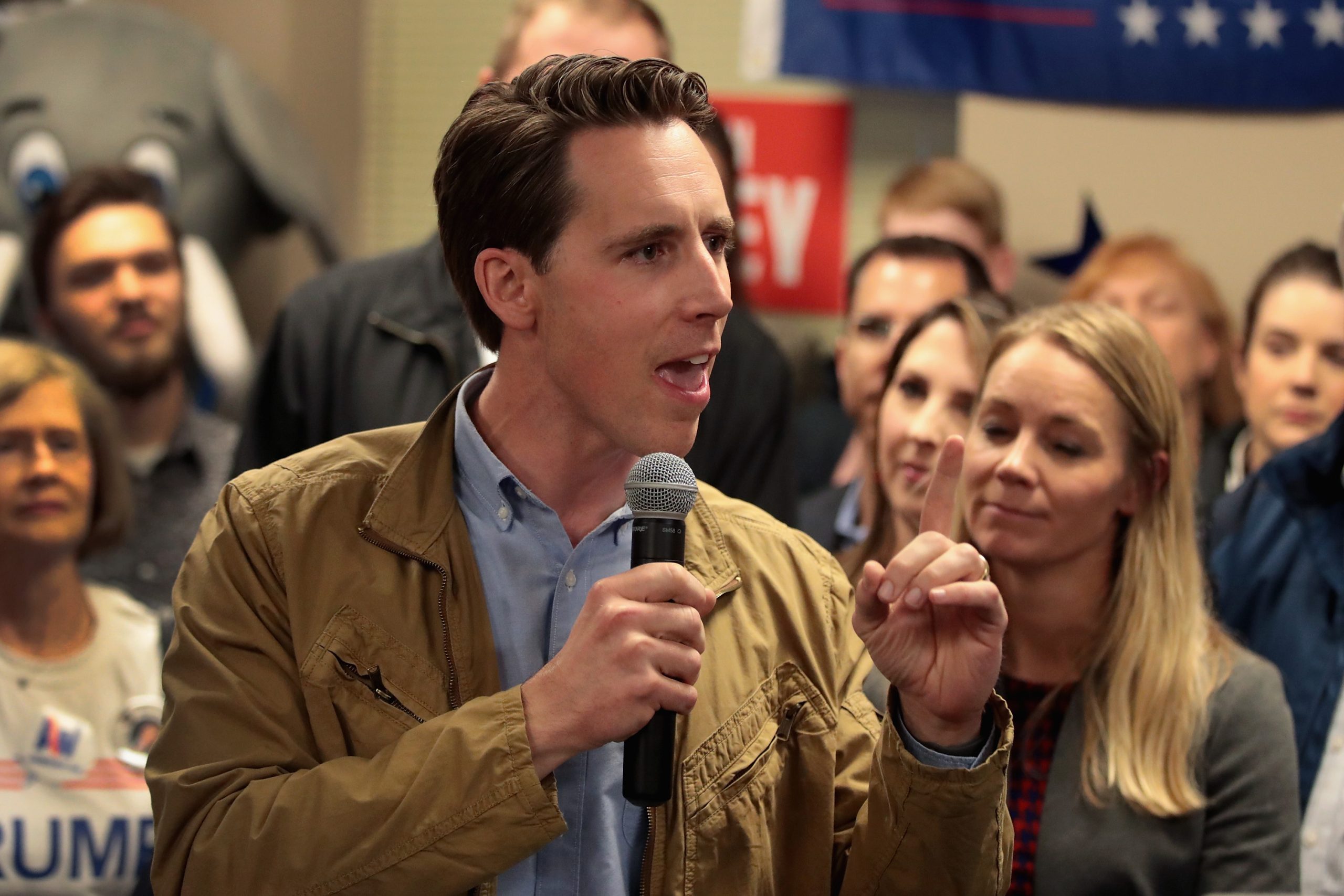Missouri Attorney General Josh Hawley's defeat of Democratic Sen. Claire McCaskill in the 2018 midterm elections earlier this month was a big deal from almost any point of view. Missouri was a pivotal swing state in the battle for the Senate, and Hawley's victory helped Republicans expand their slim Senate majority.
But Hawley's victory is an ominous sign for one company in particular: Google. Hawley campaigned as an antagonist to big technology companies in general and Google in particular.
"We need to have a conversation in Missouri, and as a country, about the concentration of economic power," Hawley told Bloomberg back in March.
Last year, as Missouri's attorney general, Hawley launched a wide-ranging investigation into Google's business practices.
"There is strong reason to believe that Google has not been acting with the best interest of Missourians in mind," Hawley said in a November 2017 statement. "When a company has access to as much consumer information as Google does, it's my duty to ensure they are using it appropriately. I will not let Missouri consumers and businesses be exploited by industry giants."
In addition to exploring privacy concerns, Hawley also vowed to dig into potentially anti-competitive behavior—including "Google's alleged manipulation of search results to preference websites owned by Google and to demote websites that compete with Google."
Hawley's stance has been particularly surprising—and ominous for Google—because Hawley is a Republican. Republicans have traditionally been more friendly to big business and skeptical of privacy and antitrust regulation. But Hawley's success is just the latest sign that attitudes on the right may be shifting.
Conservatives are increasingly hostile toward Silicon Valley
Fox News personality Tucker Carlson now regularly blasts Google on his show.
"Since it has the power to censor the Internet, Google should be regulated like the public utility it is, to make sure it doesn't further distort the free flow of information to the rest of us," Carlson said last year.
Writing for the conservative National Review in May, John Hawkins referred to Google and its largest rivals as "unaccountable monopolies with detailed information about hundreds of millions of Americans."
President Trump has sounded similar notes, both on the campaign trail and in the White House. He has repeatedly railed against Amazon, describing it as a monopoly. And in an interview with Axios earlier this month, Trump said he was "looking at" stronger antitrust enforcement against Google, Amazon, and Facebook.
But so far, there has been little sign of concrete policy changes. Trump's Justice Department did try to stop AT&T's acquisition of Time Warner, but it was unsuccessful. Beyond that, the Trump administration's approach to antitrust hasn't been significantly different from past Republican administrations.
In September, Trump's own antitrust chief at the Justice Department, Makan Delrahim, questioned whether there was "credible evidence" of antitrust violations by large technology companies. Trump may or may not agree with that assessment, but his influence is limited because norms dictate that antitrust decisions be made by Delrahim (as well as officials at the Federal Trade Commission) without interference from the White House.
Hawley’s election could be a sign of things to come
That brings us back to Senator-elect Josh Hawley.
As a US senator, Hawley will obviously have an opportunity to press directly for stricter enforcement of antitrust laws. He might find that he can form alliances with liberals like Bernie Sanders and Elizabeth Warren on the issue.
But the larger significance of Hawley's election is as a sign of where the Republican party might be going. Conservative intellectuals are still broadly hostile toward stronger enforcement of antitrust laws, and there's no reason to expect a general conservative rethink of their views of antitrust policy. But Hawley's success suggests there may be a strong appetite among Republican voters for policies that specifically target powerful Silicon Valley companies like Google.
Conservatives once viewed Silicon Valley companies as poster children for free-market capitalism. But as the political landscape has become more polarized and Silicon Valley leaders have become more open about their own partisan leanings (Google's Eric Schmidt actively supported both Barack Obama and Hillary Clinton, for example), many conservatives now view Silicon Valley companies—especially Google and Facebook—as combatants in the culture wars.
And so the danger for Google is that Hawley's approach could represent the future of the Republican party. Future congressional and even presidential candidates could run against big technology companies and in favor of stricter enforcement of antitrust and privacy laws against those companies.
Google has gotten lucky with Trump in one respect—while Trump talks a big game about reining in big technology companies, he hasn't had a lot of success at actually changing antitrust policy under his watch. The next Republican president might be somebody like Hawley—just as anti-Google in his rhetoric but with the policy expertise and connections necessary to translate that rhetoric into practical policy changes.


